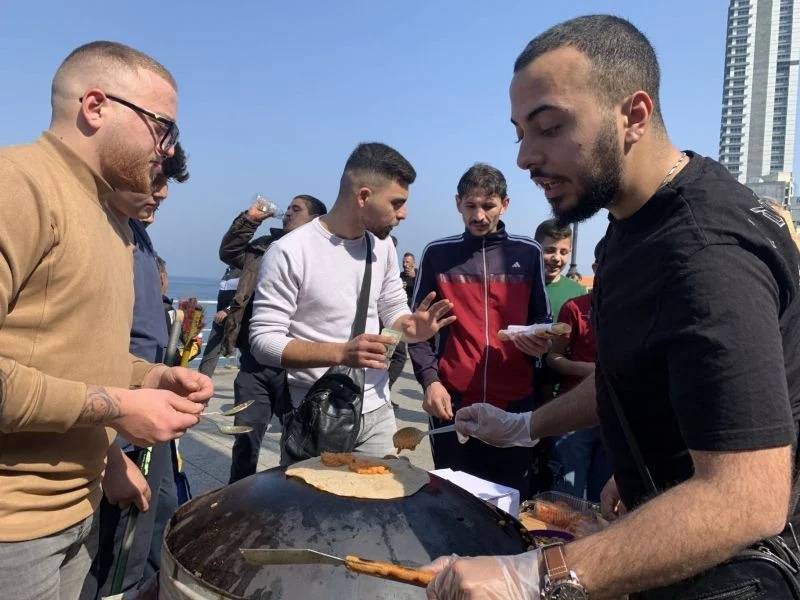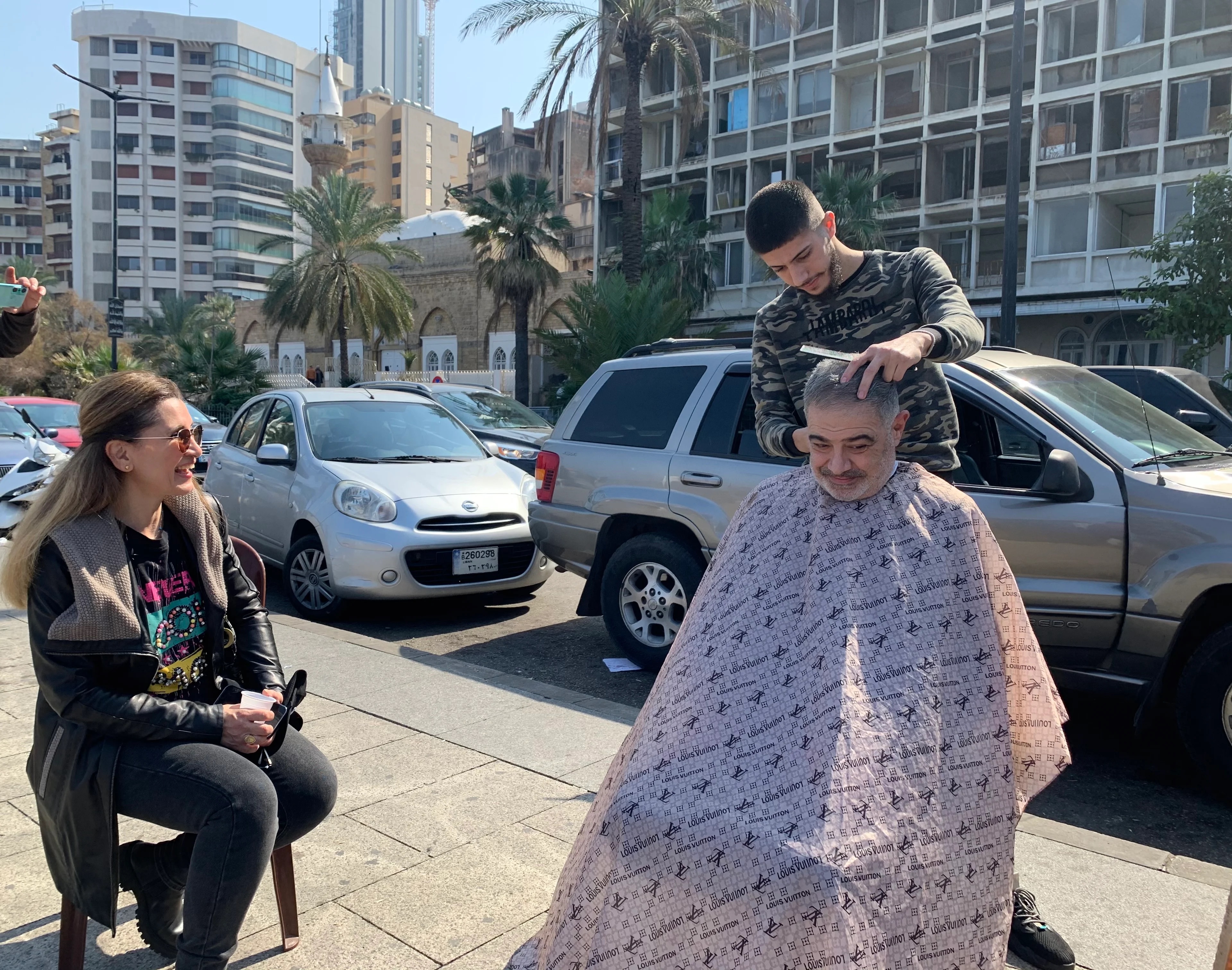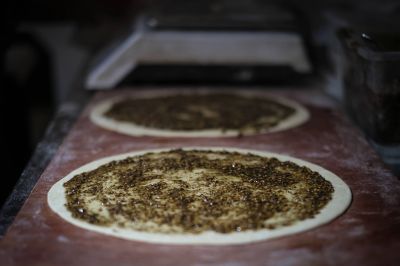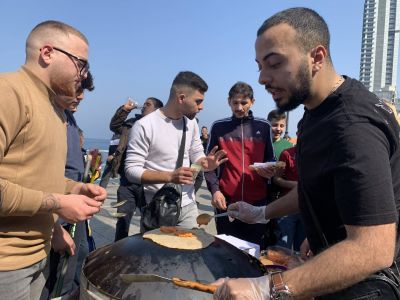
Julien (right) and Ali (center) prepare manaeesh on the saj. (Credit: Antoine Gallenne)
A traditional oven (saj), a multitude of ingredients essential to make Lebanese specialties, bewitching aromas and a car broadcasting music, windows open: it is 10 o’clock and, like every Sunday, Julien, Ali, Lamytta and Rancy set up on the Ain al-Mreisseh corniche to sell dishes with one particularity: their ridiculously low price.
“LL1,500 for a kishik manoushe? We’re no longer used to it!” said Tarek, a cap on his head and a bag in hand. A few minutes later, he left with a smile on his face and a full stomach.
‘We just want to help them’
On Feb. 19, this group of friends, known as “Shou Ra’yak” [Arabic for “What do you think”], made of students and freshly graduated employees, launched this initiative to mitigate the plummeting Lebanese lira, which has lost 98 percent of its value since 2019. Financed by their savings, the manaeesh are sold at LL1,500, the equivalent of $1 at the pre-crisis rate.
“Food prices have become too high for the Lebanese. We just want to help them,” said Lamytta, an 18-year-old student of economics, with sunglasses on her head and wearing leather pants. Passers-by can buy zaatar or kishik manaeesh and fruit juice.
The initiative has attracted many curious people. “Not all at once,” said Julien, busy spreading zaatar on a manoushe amid about 20 people.
Joumana, 50, was there for the second time with her family to enjoy the sea view and the group’s snack offering. “They are doing a great job! It’s delicious!” she said, before listing the dishes she can no longer eat because of price increases. “I used to like to cook pasta with meat. Now I hardly ever use it anymore,” she said.
According to Rancy, a member of the group, it was essential to get involved with the initiative. “Food is the basis of everything. We are furious to see the state in which the country is,” he said.
One initiative leads to another
This approach has given ideas to Steve, a hairdresser in Beirut, who has also set up a stand on the corniche. Amid scissors and clippers, a sign reads: “LL5,500 for a haircut.”
 Steve, a hairdresser, offers haircuts at LL5,500. (Credit: Antoine Gallenne)
Steve, a hairdresser, offers haircuts at LL5,500. (Credit: Antoine Gallenne)
Within a few minutes of Steve completing his setup, his first customer arrived.
“It’s my first haircut outdoors!” said Elie. His wife, Chantal, was also present. The couple runs a ready-to-wear store in the capital. “Our store is facing a very complicated economic situation. This type of initiative allows us to breathe a little,” Chantal, the store’s manager said, describing herself and her husband as “survivors.”
By 1 p.m. at the friends’ manaeesh stand the stock of ingredients has dwindled. In total, more than 300 manaeesh were sold.
“It’s a success,” said Ali, satisfied with the result. They will come back next week at the same time. And the group of friends have even bigger plans: “We plan to go all over the country to help all Lebanese people.”
This article was originally published in French in L'Orient-Le Jour. Translation by Joelle El Khoury.

